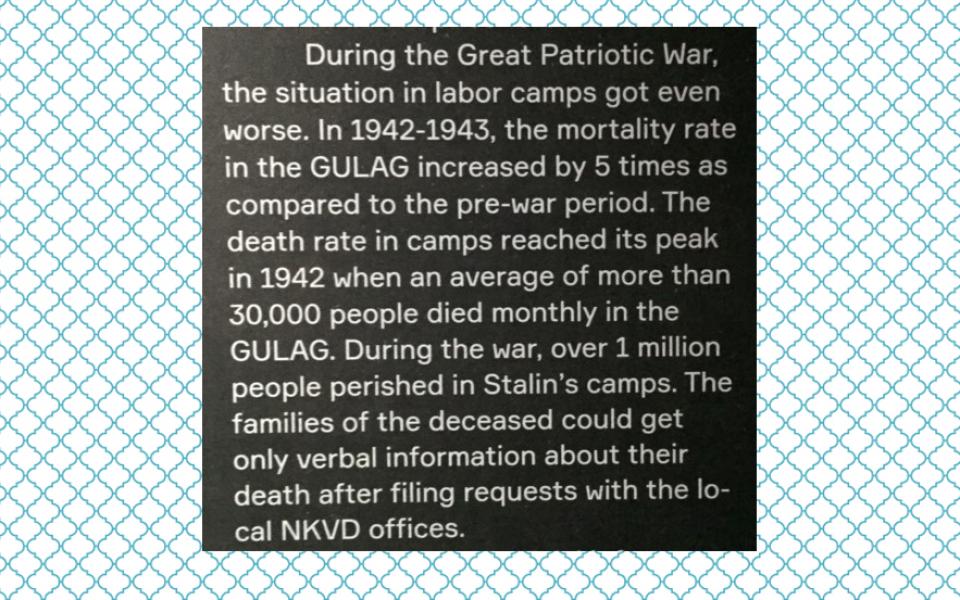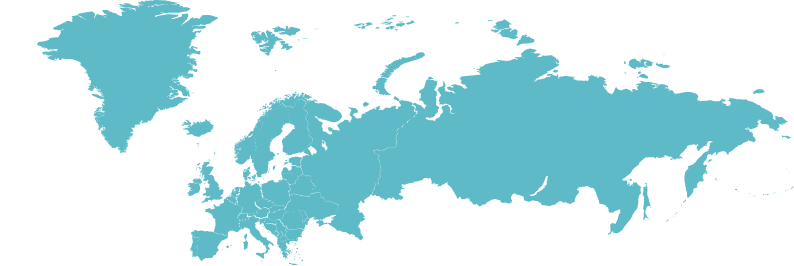“The only enemy is the one whose story you have not heard.”

Last night in St. Petersburg, a small group of us with the Center for Citizen Initiatives (CCI) listened to stories from Russian citizens (our new friends) whose close family members were alive in the days of the gulags, the siege of Leningrad, and the “Great Patriotic War” (WWII).
During the siege, our friend’s grandmother died of starvation. She surmised that her grandmother gave her rations to feed her daughter (and herself), the baby granddaughter. Later, her father was sent to the front (WWII) and never returned. Because she could not feed her baby at home, her mother placed her in an orphanage where she lived through the war years. After the war, her mother retrieved her. Today, at 83, she is a thriving English teacher. She loves leading women her age on jaunts to England.
One story goes that an uncle, who was a doctor and excellent musician, was fond of telling jokes. After perhaps a few too many vodkas, he told a joke about Stalin. A “squealer” told on him and the next day he was taken off to a gulag. Another story goes that a father, who was an accomplished engineer-geologist, was cutting watermelon and supposedly carved a swastika in the rind. A “squealer” told on him and he was taken to the gulag. Both survived 5 years of labor and “re-education.” It was explained that people with professional skills could survive the gulag because their skills were needed to industrialize the country.
Astonishingly (to me), given the lawless and cruel nature of Stalin’s autocratic rule, these family members speak well of Stalin! They credit Stalin as the only leader in Russia strong enough to build the military and industrial might needed to defeat the Nazis. They refer to it as “a cruel time.” They balance the lawless rule, torture, deaths and cruelty of the gulags, against the need for a strong country, an unassailable commander in chief who could mobilize what was needed to turn back the invading Nazis.
These stories, told by our dear new friends, touched us and disturbed us. They contrasted with our feelings at the Gulag Museum. Here is a summary from a fellow traveler:
We visited a museum to honor the victims of the gulags, a system of hundreds of slave labor prison camps established and operated by the Bolsheviks, that lasted forty years. Millions of prisoners, some gathered up in the dark of night with a knock on the door, quickly “convicted” by sham courts and sham judges, often with fabricated evidence and lies, were branded “enemies of the state.”
The first exhibit was of doors. Doors of incarceration, taken from jails and prisons and interrogation rooms and the camps themselves, from across Russia. Doors from which those who passed through often never returned.
Nearly every family in Russia was affected. Arrest quotas were established. If officials did not meet their quota, they too could be taken.
Much of the museum consisted of oral histories of the prisoners, often told by family members. Each included a picture of the victim. Many had letters sent home, asking for food to be sent.
To think that humans can do this to each other. And to think of the psychological impact of such a crime upon a nation.
By Mike Metz – a fellow citizen diplomat on our CCI trip
Tossing in the night. Feelings awry. My deeply cherished values confronted by opposing values held by good people. When is it ok for a political leader to ignore the rule of law? In my book, never! When is rule by terror ok to provide national strength needed to defeat an enemy? Never! When are cruelty, trauma and terror justified by a government? Never!
At dinner with our new friends we listened. We stretched - holding our own deep values and allowing in opposing values.
I remember the wise admonition to anyone intent on building peace, “The only enemy is the one whose story you have not heard.”
More about this series: Russia Today - Building Bridges
URI Senior Consultant Sally Mahé shares thoughts from Russia, where she is traveling with the Center for Citizen Initiatives. The trip is called a "Diplomatic Mission to the Russian Federation by American Citizens." Its purpose is to provide an opportunity “to make inquiry and analysis by traveling to Russia to learn additional points of view about US-Russia issues." The task is to begin “personal diplomacy to intervene in war-making efforts that could end all life on the planet.”
Along the way, Sally is connecting with URI members and Cooperation Circles (member groups) as she examines the actions of ordinary citizens meeting and building bridges of understanding together.
See the rest of the Russia Today - Building Bridges series here.
